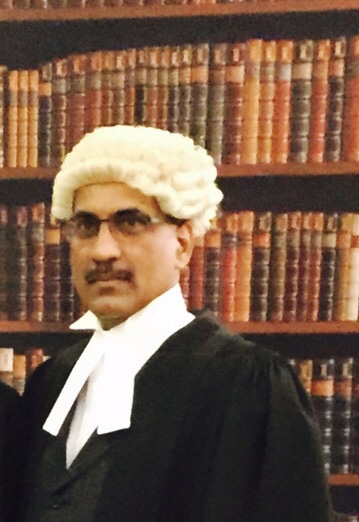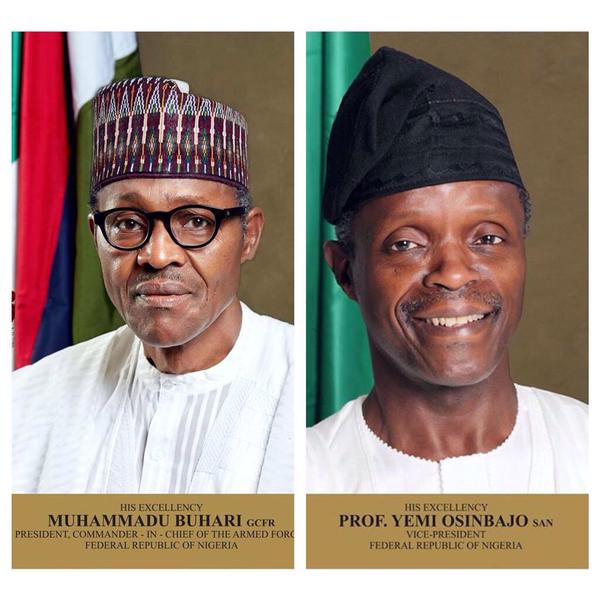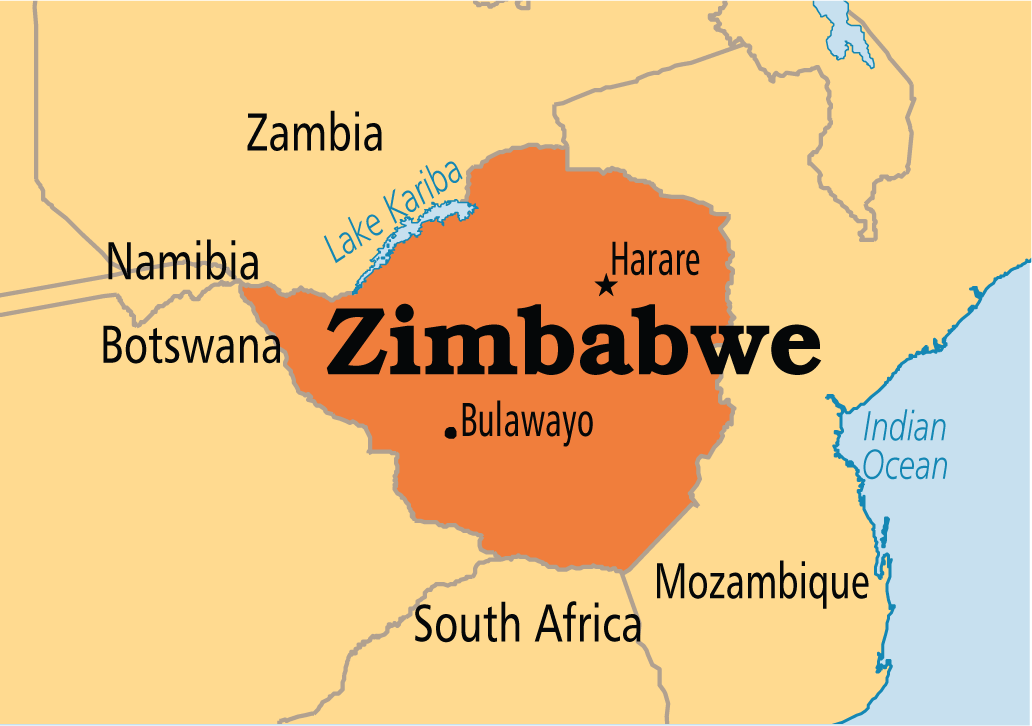
At the end of the 2017 African Union summit in Addis Ababa, Ethiopia, African leaders adopted a strategy for a mass withdrawal from the International Criminal Court (ICC). Though the decision was not binding on member states, it was the latest expression of impatience by African leaders with the court.
African leaders have over the years been critical of the ICC, arguing that the court has focused on Africa, pursuing cases of genocide, war crimes and crimes against humanity, while little attention is focused on other parts of the world where crimes against humanity have taken place. It was quite a shock when South Africa announced plans to leave the court last year, joining other African nations such as The Gambia and Burundi.
Ehis Ayere of the African Leadership Magazine caught up with a legal luminary, Mr. Sunnil Bheeroo to assess the role of ICC in Africa. The lawyer also discussed other issues in the continent and some of the steps to addressing them. Excerpt:
You are legal luminary and the Managing Partner of Swift Executive, Corporate & Legal Services, a law firm engaged in commercial, corporate, offshore & legal services. Please tell us about your background and entry into legal practise in Mauritius, Africa.
From early schooling, I wanted to be a Lawyer because I was fascinated with legal arguments and legal reasoning. I enjoyed watching films and serials where you would have trial and court sittings.
I left Mauritius at early age for UK but I could not pursue my studies in the Legal field as it was difficult in those days to secure a place in a Law school and at a fees, which I could not afford.
Therefore, I went to study Marketing, Management & Financial studies. After my initial qualifications in Marketing & Management, I worked in numerous field like Insurance companies, Health Authorities among many other private companies in finance, stock Exchange, etc. I also worked on many world Bank projects based in Burundi & Kenya.
After having settled down with my young family, I pursued my dream of becoming a Lawyer and have been practicing ever since as a Corporate Lawyer & Legal Consultant. I was based in the UK until I decided to serve my country where I was born because I could see the potential in Africa and within the region, especially with the existing protocol agreements, Treaties in between the African Continent as well as in between ACP countries, COMESA and the European Union.
Mauritius is ranked 49th out of 190 countries in the World Doing Business Report 2017, while South Africa is ranked 74. As a lawyer that provides sound investment advice and assist with investment in Mauritius and in the region under the SADC & COMESA protocol agreement, what is your take on this ranking and how would you describe the ease of doing business in Mauritius and the Southern Africa region.
African countries that enjoy the best economic performance possess characteristics of strong institutions that guide economic development that are in line with international law on trade governance. Political and economic development go hand in hand and the economies of these countries are well governed through enacted laws and regulations that maximise the benefit accrued by economic growth. Through the implementation of appropriate laws and structures, property rights, business, investment and trade freedoms are enshrined in business activities and operations and are made evident through consistent growth and development.
Again, countries such as Mauritius and South Africa have evolved their markets in a way that is conducive to economic development and entrepreneurial growth. Although small countries geographically and in terms of populations, Mauritius has looked to diversify its economies over time and attract investment in sectors that have been targeted for development. South Africa has also looked to more than resource exploitation and given substantial attention to a variety of sectors, including agriculture, financial services and tourism. A conducive business environment for start-ups and new entrants alike is a pre-requisite for good performance in the business quadrant. A common denominator between countries that enjoy good foreign investment are policies that offer incentives to both foreign and local investors.
Mauritius retains its top spot in Africa on the WB’s DBR and is first on the continent for getting electricity, paying taxes and trading across borders. Corruption remains a weak spot in the country’s business environment, with a need to improve governmental and civil service transparency and anti-bribery laws and enforcement. Mauritius, which does not have a standing army, has enjoyed a long history of peace and stability. It scores the best in Africa on the IEP’s GPI, performing well across all measures.
Mauritius is politically stable where true democracy and the rule of law are respected. It also provides good business environment and good corporate governance and where the people lives in peace and harmony by respecting each other and I am of the humble opinion that this is the foundation for our ongoing successes on the International front.
You were a legal adviser to the Ministry of Finance of Mauritius for a couple of years- precisely between 1996-1998, a period you were the Vice Chairman of the Stock Exchange Commission of Mauritius; Today, in the year 2017, with legislative and political progress and disruptions the continent continues to witness, what would be your advice to African Government towards increasing the ranking of African countries in the ranking of World Doing Business Report?
A good performance in the Doing Business rankings is increasingly becoming a government priority for many African countries including Mauritius. Today, to ensure the coordination of efforts across agencies, many African governments have formed regulatory reform committees that focus on improving performance in the rankings, as a measure of competitiveness. Mauritius ranks best in the region, with a global ranking of 32, performing particularly well in the areas of Paying Taxes and Enforcing Contracts. In Mauritius, it takes only 152 hours for entrepreneurs to pay taxes, compared to 261 hours globally.
The African legal and regulatory landscape is fluid and constantly changing, and ignoring its complexities could lead to disaster. Red tape, a slow judicial process and a high cost of compliance all mean that, from the very outset, firms should find legal advice, with specialist knowledge and expertise in the areas they need help with. As Africa emerges as the ‘growth’ continent, investors need to remain patient, adaptive and committed in order to achieve meaningful and profitable results.”
Corruption is one of the many challenges that impede the growth of Africa in all fronts. What is your take on corruption in the continent, and how can this menace be addressed from a legal perspective?
Corruption has always existed in different forms and the root causes of corruption vary from place to place depending on the political, social, economic and cultural circumstances. It exists in rich and poor countries alike, it involves both individual States and international organizations and its costs are borne by the citizens.
Despite the myriad factors (lack of accountability and transparency, weak judicial system and constant insecurity and conflicts, neo-colonialism, nepotism) that contribute to or cause corruption, in the case of Africa, the deep seated governance problem seems to explain why the continent is viewed as very corrupt.
There is abounding evidence in developing countries indicating that corruption negatively affects growth and development. Corruption is an impediment to political, economic and social development, hinders administrative development and performance, impairs economic efficiency, discourages foreign investments, subverts democracy and undermines the state legitimacy.
The UNCAC and the AU Convection on presenting and combating corruption spell out clear benchmarks and measures for the effective, prevention, education and enforcement. It is the responsibilities of state parties to ensure that these conventions are fully domesticated so as to tighten legislative gaps. Most countries have put in place some of these measures. Full implementation and citizens’ education, information, knowledge and engagement are of paramount importance.
Some countries already have dedicated agencies spearheading the fight against corruption while others do not. It is imperative that all governments set up independent anti-corruption agencies with sufficient powers and capacity to fight corruption. There is also need for effective oversight mechanism over such institutions to ensure that the ‘watchers are also watched’. The civil society, the private sector, and other watchdog bodies such as the parliament have a responsibility to demand transparency and accountability from the anti-corruption agencies on the implementation of their mandates.
Policy Reforms: African countries need to develop policies to guide the anti-corruption legislative and administrative actions and processes which would ultimately promote good governance. It is worth of noting that many African countries are yet to develop anti-corruption policies or review the existing policies to bolster the fight against corruption.
Legislative and Institutional Reforms: The African countries should strive to review their legal and institutional frameworks in order to make corruption a high risk venture with negative returns. The institutional reforms must target all institutions especially within the public sector to ensure that their operations are streamlined to enhance good governance.
Most African governments have long been criticizing the international Criminal court as being bias against African states and, in recent times, some of the leaders have made attempts to leave the organization. What is your thought on the role of ICC in Africa?
African submission to ICC jurisdiction exists within political and “structural” inequalities in the global arena, meaning that the ICC’s involvement in Africa is not simply a question of the ICC’s targeting of Africa. Nor is it a matter of whether African states themselves participated in referring particular cases. Rather, it has to do with which crimes can be pursued, which agents can be held responsible, whether Africa’s violence can be managed by African countries, and whether the crimes of the Rome Statute are sufficient to address the root causes of violence in Africa’s political landscape.
Critics of the ICC’s actions in Africa assert claims based in morality, legality, and sociological legitimacy (understood as perceptions of fairness). First, critics accuse the ICC of acting immorally by discriminating against Africa and Africans in deciding which situations to investigate and prosecute. The evidentiary basis for such claims is weak.
Second, critics claim that the ICC has failed to respect the sovereignty of African states. This is essentially a legal claim. Critics charge the ICC with failing to respect the international law governing head of state immunity, which they claim prohibits prosecution of heads of state, even for international crimes.
The strongest argument that the ICC’s exclusive focus on Africa is inappropriate is a sociological one. Substantial evidence suggests that perceptions of the ICC’s fairness have suffered in at least some African audiences as a result of the focus on Africa. However, it remains unclear whether such perceptions are located primarily at the governmental level or are shared widely among African populations. While some African governments, as well as the African Union, have voiced concerns about the ICC’s fairness, the available evidence suggests that African civil society continues substantially to support the work of the ICC.
The ICC’s focus on Africa has prompted many within and beyond Africa to ask why it is only Africans facing international justice in The Hague when crimes are widespread in other parts of the world. The ICC’s focus on Africa is both necessary and appropriate. We must not forget that ICC intervention signals first and foremost a failure of states, which have the primary responsibility to fairly and impartially investigate and prosecute crimes within their jurisdiction.
There are many reasons in favor of ICC’s involvement in African Situations; from the nature of the crimes and widespread systematic conflicts on the continent to a lack of capacity or willingness to hold perpetrators accountable, thereby providing redress to victims. The importance of the ICC is clear. We live in a deeply interconnected and interdependent world, one where the words of Martin Luther King, Jr. hold true: “Injustice anywhere is a threat to justice everywhere.” Justice is imperative, not just as a redress for crimes that have been committed, but because it is the surest foundation for viable and lasting peace. The ICC helps promote accountability and the rule of law, reduce the perceived value of criminal behaviour, secure justice for victims, and promote post-conflict peace and stability. 






